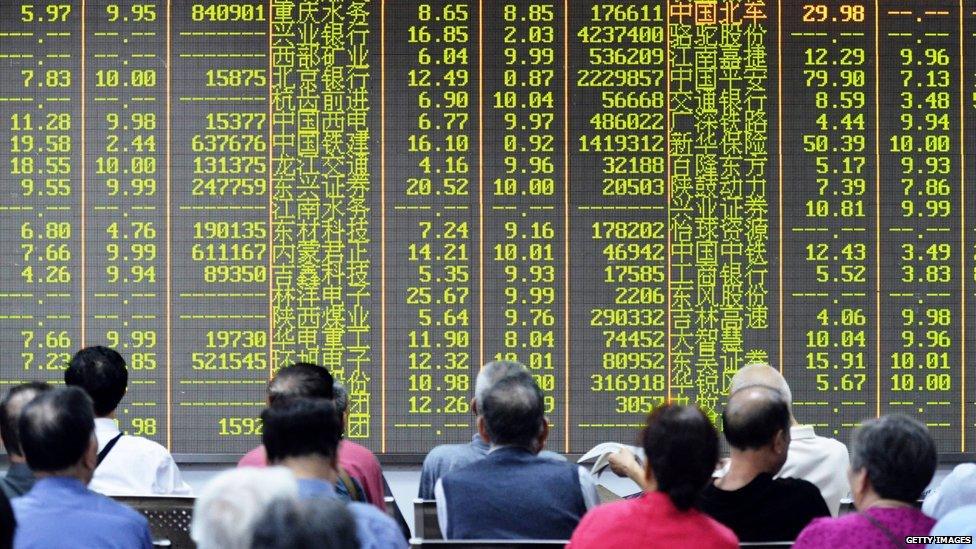Fear China's stock-market earthquake
- Published
- comments

For all my obsession with the probable exit of Greece from the euro and the most important social-security-cutting and tax-reforming UK budget for many years, there is an earthquake happening in China that may end up touching our lives as much.
It is the plunge over the past month of Chinese shares - whose value has dropped by around a third since the high of 12 June.
So to make an apple-and-pears comparison: the loss in the value of Chinese companies at more than $3 trillion is about 20 times what most economists expect the write-offs of Greek government debt will ultimately turn out to be.
The difference, of course, is that the $3 trillion loss is divided among around 90 million Chinese people, rather than a handful of European governments.
But not to be sniffed at is the political significance of 90 million Chinese - who number more than membership of the Chinese Communist Party - feeling a lot less wealthy.
Which is why Beijing has been throwing everything at trying to find a way to end the rout - including cutting the cost of money - and has been failing miserably.
One of the so-called solutions to this market disaster is that an astonishing 1301 companies have had trading in their shares suspended. Their prices can't fall any more because the shares can't be bought or sold.
But this means that a further $2.6 trillion of wealth, tied up in these shares, is completely frozen - which adds insult to investors' capital-loss injury.
Here's the chilling thing. What's going on in China is madly redolent of the 1929 Wall Street crash.
Here's why.
The 150% rise over a year in the Shanghai Composite Index to its mid-June peak was largely driven by investors borrowing to buy shares, or margin trading in the jargon, just as happened in the US during the Roaring Twenties.
And the subsequent self-reinforcing collapse has been driven by China's indebted investors being forced to sell shares to meet their debts.
As for the economic significance of what is going on, well these very big stock markets in Shanghai and Shenzhen are no longer serving their core purpose of supplying equity capital to businesses - which will have a significant negative impact on Chinese growth.
And the collapse completely undermines Beijing's attempt to shift economic power from State Owned Enterprises to the private sector and markets.
The public sector is once again all powerful and all important.
And if the market rout leads to a further significant deceleration in the growth of the world's second-biggest economy, we will all feel the after shocks.